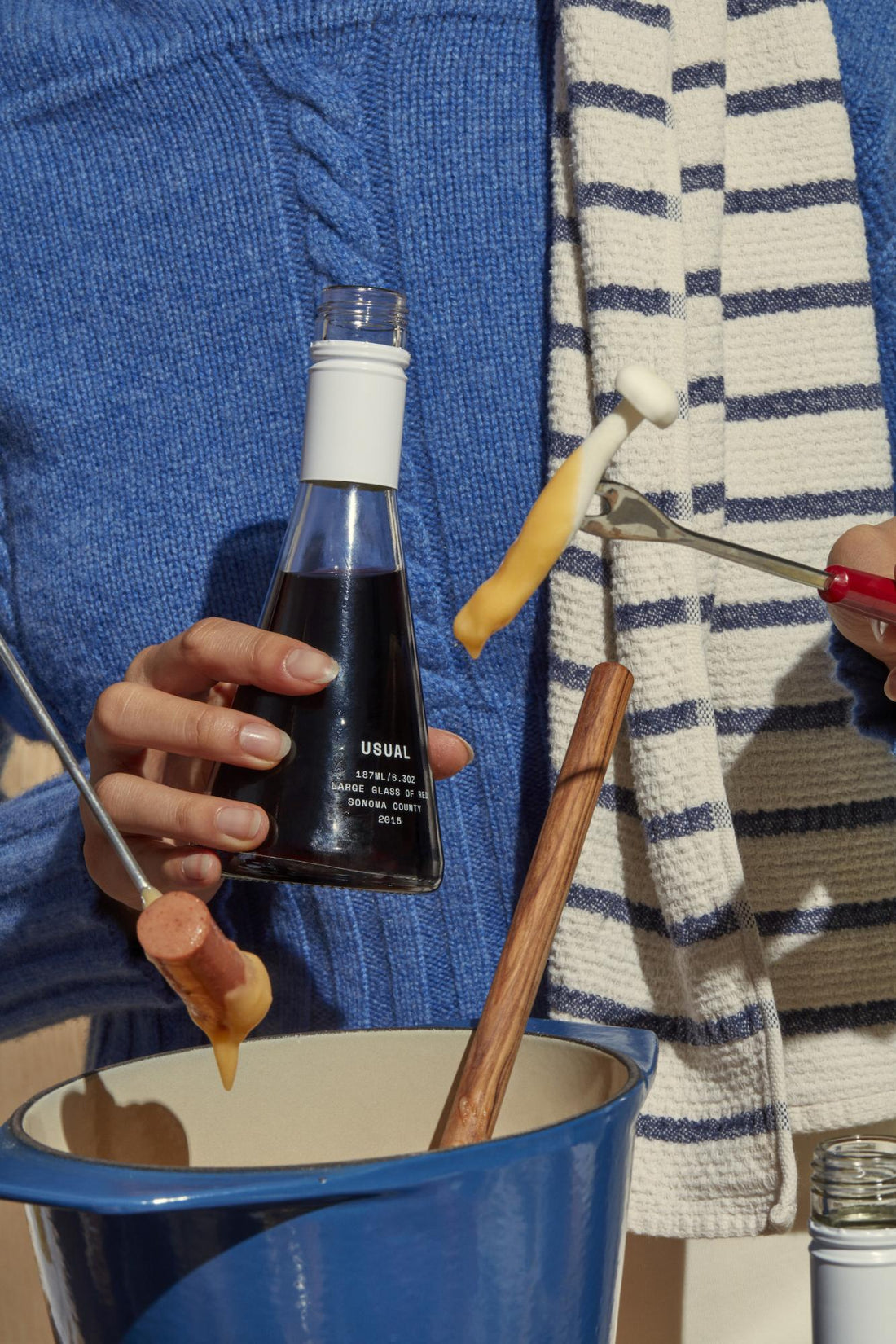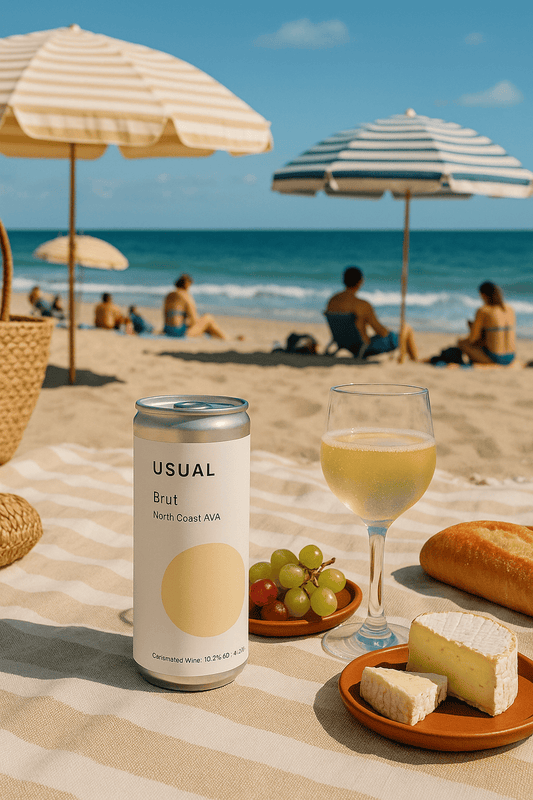
Wine With Low Sulfites: Do Low Sulfite Wines Really Matter?
McKenzie HaganAs much as we love wine, it can make us feel a little rough if we overindulge. If you often wake up with a wine headache, you may wonder if there’s something in wine that doesn’t agree with you. Could your hangover actually be caused by sulfites? And, could low sulfite wine be the answer to your prayers?
With many companies boasting about their low sulfite wine, or sulfite-free wines, you may think these are the holy grail of headache-free wine drinking. But unfortunately it’s really not as simple as that.
In this article we break down the truth about sulfites. Are the sulfites in your wine causing you harm, or is it all just scaremongering? Read on to find out.
What Are Sulfites?
Sulfites are substances found naturally in some food. They have a preservative nature, so are commonly added to foods to extend their shelf life.
It's common practice for those in the food industry to add sulfites to perishable foods. Not only do these substances prolong the freshness of the food, by protecting them from bacteria and fungi, but sulfites also preserve taste and color.
In 1986 the FDA criminalized adding sulfites to fresh fruit and vegetables, which are commonly eaten raw. However, sulfites are prevalent in the production of processed foods. Many of our favorite grocery store must-haves have been treated with sulfites at some point in their product cycle. Some of these include:
- Dried fruits
- Canned fruits and vegetables
- Condiments
- Jams, jellies and other preserves
- Deli meats
- Baked goods, including granola bars
The average American eats these types of food on a daily basis without issue. However, people are wary of sulfite consumption, especially when it comes to wine.
Sulfites in Wine

When discussing sulfites, wine often comes up in the conversation, often unfairly. As you can see, many perishable food and drink products are treated with sulfites. Naturally, people look to their wine consumption when trying to limit their sulfite intake.
Wine grapes have natural sulfites, which help to protect the fruit from bacteria, therefore all wine has some level of sulfites present. It's also common practice in winemaking to add sulfites to wine during the fermentation process in order to protect against spoilage, prevent oxidation, and halt fermentation prematurely.
While this may seem extreme, in reality, winemakers are simply topping up the grapes’ natural preservatives in order to preserve the flavor and color. Furthermore, because sulfite inclusion is heavily regulated, winemakers are restricted in how much they can add to their wines.
A bottle of wine must contain less than 10 ppm (parts per million) of sulfites. If they surpass these guidelines, they are legally obligated to display "contains sulfites" on the bottle. Compare this to the levels of sulfites present in some processed food, and you’ll see wine is not the main offender when it comes to your sulfite intake.
Dried fruits, such as apricots, raisins and other healthy treats are some of the highest in sulfites. Certain packages of dried fruits have as much as 2000 ppm of sulfites. Compared to a measly 10 ppm in your favorite bottle of Merlot, and you'll realize wine is not the worst offender.
The Truth About Sulfite Sensitivity
Sulfite allergies are real and can be life-threatening. Those suffering with a sulfite allergy can break out in hives, have trouble breathing, and even die after consuming sulfites.
Luckily, these allergies are very rare. In fact, less than 1% percent of the U.S. population suffers from sulfite sensitivity. Out of those with a sulfite allergy, 5% also suffer from asthma. If you are an asthmatic, be cautious, as an allergic reaction combined with an asthma attack is extremely dangerous.
If you are worried you may have a sulfite allergy, we advise you to talk to your doctor. However, any adverse effects caused by drinking wine (insomnia, queasiness, or dreaded wine headaches) are much more likely to be caused by alcohol consumption, rather than sulfite consumption.
Choosing Low Sulfite Wine
If you prefer to err on the side of caution, you could opt for low sulfite wines.
A great low sulfite wine option is red wine. Because red wine has more tannins than white wine, it naturally has more antioxidants present. These antioxidants help to preserve the wine, keeping the wine tasty, bright in color, and bacteria-free, with minimal intervention from the winemakers.
While winemakers may still choose to add sulfites to red wine because of their natural hardiness against bacteria. So in the battle of red wine vs. white wine, a nice bottle of Tempranillo or Syrah should be lower in sulfites than a Pinot Grigio.
However, if you can’t face even the best red wine, don’t worry. There are high tannin white wines on the market. Chardonnay has a higher level of tannins than your average white wine due to the way it's matured in oak barrels.
It’s also a good option to check your wine bottles wherever possible. Because the FDA insists bottles must be labeled if sulfites surpass the recommended 10 ppm, if your bottle is free from warning, it’s safe to assume it's a low sulfite wine.
Choosing Sulfite-Free Wine
Many companies claim to offer sulfite-free wine, but the truth is, these simply do not exist. Due to naturally occurring sulfites found in grapes, all wine contains small amounts of sulfites. What these companies probably mean is their wine doesn’t have added sulfites.
These "sulfite-free" wines are usually known as organic wines or biodynamic wines, as they use minimal human intervention when winemaking. This can include not fining the wine, meaning they don't remove cloudiness or discoloration in wine and instead rely completely on the grape’s natural antioxidants to protect the wine from spoiling.
Organic wines can be incredible. After all, they use traditional winemaking techniques popularized centuries ago (admittedly, we're a bit biased when it comes to small-batch, additive-free wine). However, by not adding sulfites or other preservatives, wines are at risk of going bad or losing their bright colors. Hey, all the more reason to open a fresh, single-serving bottle every time!
If you’re worried about the amount of sulfites you’re consuming, that’s fair enough. However, before you start reaching for the organic wine, or throwing wine out completely, you may want to check the other foods you’re eating first. As we’ve seen, processed foods are much higher in these additives. Your deli meat sandwich or your cranberry-topped muesli could be more harmful than your evening glass of Pinot Noir.
Should We Bother With Low Sulfite Wine?

Wine lovers rejoice: For the mass majority of us, wine sulfites are nothing to worry about. While those with allergies and sensitivities must be diligent with their consumption, for the average wine drinker, sulfites should mean very little.
Sulfites are safely added to perishable foods in order to protect them for spoilage on a daily basis, and compared to many processed foods, wine has very low levels of sulfites. So, you can rest easy knowing these preservatives won’t hurt you.
If you would like to avoid sulfites regardless, your best bet is to opt for tannin-heavy red wines or organic wines like Usual for even lower levels of sulfites. But remember, if you’re serious about ridding yourself from sulfites, start in the pantry. Don’t take it out on your wine collection!








